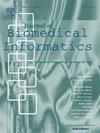Enhancing data quality in medical concept normalization through large language models
IF 4
2区 医学
Q2 COMPUTER SCIENCE, INTERDISCIPLINARY APPLICATIONS
引用次数: 0
Abstract
Objective:
Medical concept normalization (MCN) aims to map informal medical terms to formal medical concepts, a critical task in building machine learning systems for medical applications. However, most existing studies on MCN primarily focus on models and algorithms, often overlooking the vital role of data quality. This research evaluates MCN performance across varying data quality scenarios and investigates how to leverage these evaluation results to enhance data quality, ultimately improving MCN performance through the use of large language models (LLMs). The effectiveness of the proposed approach is demonstrated through a case study.
Methods:
We begin by conducting a data quality evaluation of a dataset used for MCN. Based on these findings, we employ ChatGPT-based zero-shot prompting for data augmentation. The quality of the generated data is then assessed across the dimensions of correctness and comprehensiveness. A series of experiments is performed to analyze the impact of data quality on MCN model performance. These results guide us in implementing LLM-based few-shot prompting to further enhance data quality and improve model performance.
Results:
Duplication of data items within a dataset can lead to inaccurate evaluation results. Data augmentation techniques such as zero-shot and few-shot learning with ChatGPT can introduce duplicated data items, particularly those in the mean region of a dataset’s distribution. As such, data augmentation strategies must be carefully designed, incorporating context information and training data to avoid these issues. Additionally, we found that including augmented data in the testing set is necessary to fairly evaluate the effectiveness of data augmentation strategies.
Conclusion:
While LLMs can generate high-quality data for MCN, the success of data augmentation depends heavily on the strategy employed. Our study found that few-shot learning, with prompts that incorporate appropriate context and a small, representative set of original data, is an effective approach. The methods developed in this research, including the data quality evaluation framework, LLM-based data augmentation strategies, and procedures for data quality enhancement, provide valuable insights for data augmentation and evaluation in similar deep learning applications.
Availability:
https://github.com/RichardLRC/mcn-data-quality-llm/tree/main/evaluation

通过大型语言模型提高医学概念规范化中的数据质量
目的:医学概念归一化(MCN)旨在将非正式医学术语映射为正式医学概念,这是构建用于医学应用的机器学习系统的关键任务。然而,大多数现有的MCN研究主要集中在模型和算法上,往往忽视了数据质量的重要作用。本研究评估了不同数据质量场景下MCN的性能,并研究了如何利用这些评估结果来提高数据质量,最终通过使用大型语言模型(llm)提高MCN的性能。通过一个案例研究证明了该方法的有效性。方法:我们首先对用于MCN的数据集进行数据质量评估。基于这些发现,我们采用基于chatgpt的零射击提示进行数据增强。然后从正确性和全面性两方面评估生成数据的质量。通过一系列实验分析了数据质量对MCN模型性能的影响。这些结果指导我们实现基于llm的少量提示,以进一步提高数据质量和改进模型性能。结果:数据集中数据项的重复可能导致不准确的评估结果。使用ChatGPT的零采样和少采样学习等数据增强技术可以引入重复的数据项,特别是那些位于数据集分布的平均区域的数据项。因此,必须仔细设计数据增强策略,结合上下文信息和训练数据来避免这些问题。此外,我们发现在测试集中包含增强数据对于公平评估数据增强策略的有效性是必要的。结论:虽然llm可以为MCN生成高质量的数据,但数据增强的成功很大程度上取决于所采用的策略。我们的研究发现,少量学习,结合适当的背景和一组小的、有代表性的原始数据的提示,是一种有效的方法。本研究开发的方法,包括数据质量评估框架、基于llm的数据增强策略和数据质量增强程序,为类似深度学习应用中的数据增强和评估提供了有价值的见解。可用性:https://github.com/RichardLRC/mcn-data-quality-llm/tree/main/evaluation
本文章由计算机程序翻译,如有差异,请以英文原文为准。
求助全文
约1分钟内获得全文
求助全文
来源期刊

Journal of Biomedical Informatics
医学-计算机:跨学科应用
CiteScore
8.90
自引率
6.70%
发文量
243
审稿时长
32 days
期刊介绍:
The Journal of Biomedical Informatics reflects a commitment to high-quality original research papers, reviews, and commentaries in the area of biomedical informatics methodology. Although we publish articles motivated by applications in the biomedical sciences (for example, clinical medicine, health care, population health, and translational bioinformatics), the journal emphasizes reports of new methodologies and techniques that have general applicability and that form the basis for the evolving science of biomedical informatics. Articles on medical devices; evaluations of implemented systems (including clinical trials of information technologies); or papers that provide insight into a biological process, a specific disease, or treatment options would generally be more suitable for publication in other venues. Papers on applications of signal processing and image analysis are often more suitable for biomedical engineering journals or other informatics journals, although we do publish papers that emphasize the information management and knowledge representation/modeling issues that arise in the storage and use of biological signals and images. System descriptions are welcome if they illustrate and substantiate the underlying methodology that is the principal focus of the report and an effort is made to address the generalizability and/or range of application of that methodology. Note also that, given the international nature of JBI, papers that deal with specific languages other than English, or with country-specific health systems or approaches, are acceptable for JBI only if they offer generalizable lessons that are relevant to the broad JBI readership, regardless of their country, language, culture, or health system.
 求助内容:
求助内容: 应助结果提醒方式:
应助结果提醒方式:


